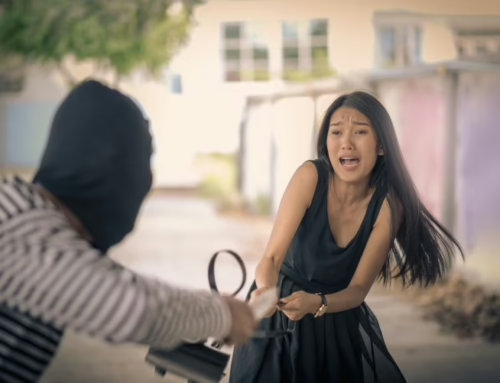A person suspected or accused of a crime could choose to try to talk to law enforcement in a criminal case. While a request for a statement could come from police or a prosecutor, a suspect, potential suspect, or accused criminal defendant should never agree to it. Rather, the party should contact a criminal defense attorney for assistance. It is rarely a good idea for someone in such a position to speak to law enforcement, and it is virtually never a good idea to so without the assistance of experienced counsel.
Can an Accused Talk to Law Enforcement?
Hypothetically, a person accused of a crime can try to speak with the police or a prosecutor prior to charges being filed or after charges are filed. But note that ethics rules state that a prosecutor cannot speak with a defendant if a lawyer knows that he or she is represented by a defense attorney.
If unrepresented, a prosecutor can agree to speak with an accused. In this scenario, however, the prosecutor must always advise the accused of his/her:
- right to remain silent, and
- right to counsel.
If a suspect expresses a desire to speak with a criminal defense attorney, public defender, or private attorney, the prosecutor must cease all communication with the accused or criminal defendant. A prosecutor that fails to cease talks will violate the accused’s constitutional rights as well as state ethics rules.
Should an Accused Speak with Law Enforcement?
A suspect or an accused should not speak with police officers or prosecutors prior to consulting a criminal defense lawyer or without the assistance of such an attorney. This is because the accused may:
- Provide the prosecution with information it did not have,
- Admit something that the prosecution cannot prove,
- Admit things that s/he does not realize help the prosecution’s case,
- Admit parts of the prosecution’s case that make the entire case easier to prove,
- Ignore the fact that a law enforcement agency may have violated his/her rights in their investigation/arrest, and/or
- Agree to something without knowing the true result or consequence.
As to the last point, note that a prosecutor is under no obligation to provide a suspect with legal advice regarding the consequences of his/her actions. This means that, if an accused speaks with a D.A., he or she could say something or agree to something without knowing the true ramifications of that statement/agreement.
It is almost never advisable for a suspect to make a statement to law enforcement. There are few exceptions. One is when the government agrees to grant immunity and/or not use someone’s statement against the suspect. The government will typically only make such an agreement when a suspect can help them prosecute others. In such situations, it is absolutely critical to have counsel to help negotiate the terms of cooperation and navigate the many pitfalls that can arise.
Should a Person Ask for a Defense Counsel if Approached by Police or a Prosecutor?
Yes. A person accused of a crime should seek the help from a:
- criminal defense attorney,
- law firm experienced with criminal cases, or
- a public defender.
This is true even if a prosecutor does not ask the defendant questions. A defense attorney is skilled in protecting the rights and liberties of an accused. They can help ensure that a suspect does not provide statements that may result in damaging his/her case. This includes statements to law enforcement or anyone else for that matter.
Contact Black & Askerov for Help
The attorneys at our firm have over 30 years of combined experience in representing parties accused or charged of criminal offenses. They are passionate in their work and tireless in their efforts. No matter if you have been formally charged with a crime, or merely suspected of one, it is critical that you contact them now. Do not damage your freedoms by trying to handle your case alone. Contact Black & Askerov and get the legal help you deserve.






